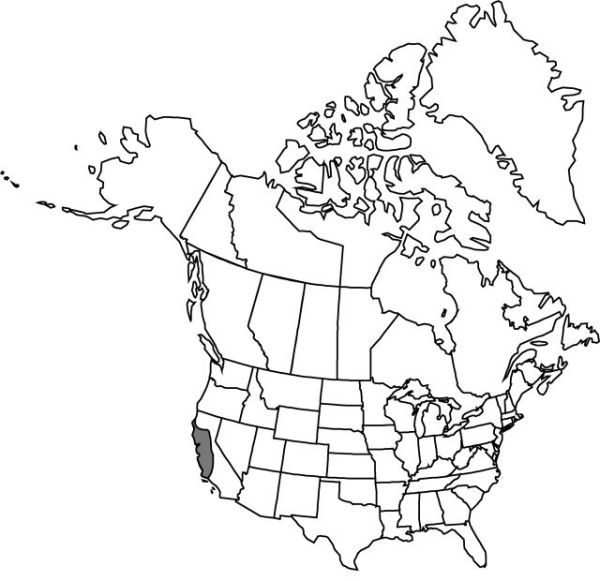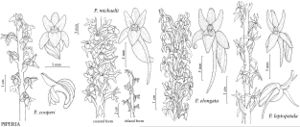Piperia michaelii
Bull. Torrey Bot. Club 28: 640. 1901.
Plants 9–70 cm. Stems attenuate toward tuberoid, fistulous, 1.5–12 (–17) mm diam. distal to leaves; bracts 3–50. Leaves prostrate to erect-spreading; blade 7–22 (–30) × 1.5–4 (–6.2) cm. Inflorescences ± densely flowered, 3–33 cm; rachis usually shorter than peduncle; bracts 4–17 (–22) mm. Flowers green, fragrance nocturnal, strong, pleasant; sepals 2–4.8 × 1.3–3.7 mm; dorsal sepal ovate-elliptic to ovate; lateral sepals spreading to recurved, oblong-lanceolate to oblong-ovate; petals erect-spreading, asymmetrically triangular-ovate, 2.2–4.5 × 1–2.2 mm; lip straight to ± bent, ovate-triangular, 1.7–5 × 1.3–5 mm; spurs mostly deflexed, sometimes mixed with horizontal ones, 9–16 mm; viscidia broadly oblong, 0.4–0.75 × 0.15–0.4 mm; rostellum blunt. Capsules 5–13 mm. Seeds blackish brown, rarely brown.
Phenology: Flowering late Apr–mid Aug.
Habitat: Coastal bluffs and scrub, chaparral, oak woodland
Elevation: 0–700 m
Distribution

Calif.
Discussion
Coastal plants of Piperia michaelii are stouter, have more stem bracts and denser inflorescences, and are later blooming than interior populations. Occasionally the seeds of plants in interior locations are brown. Where P. michaelii and P. elongata are sympatric, the former blooms earlier than the latter.
Selected References
None.
